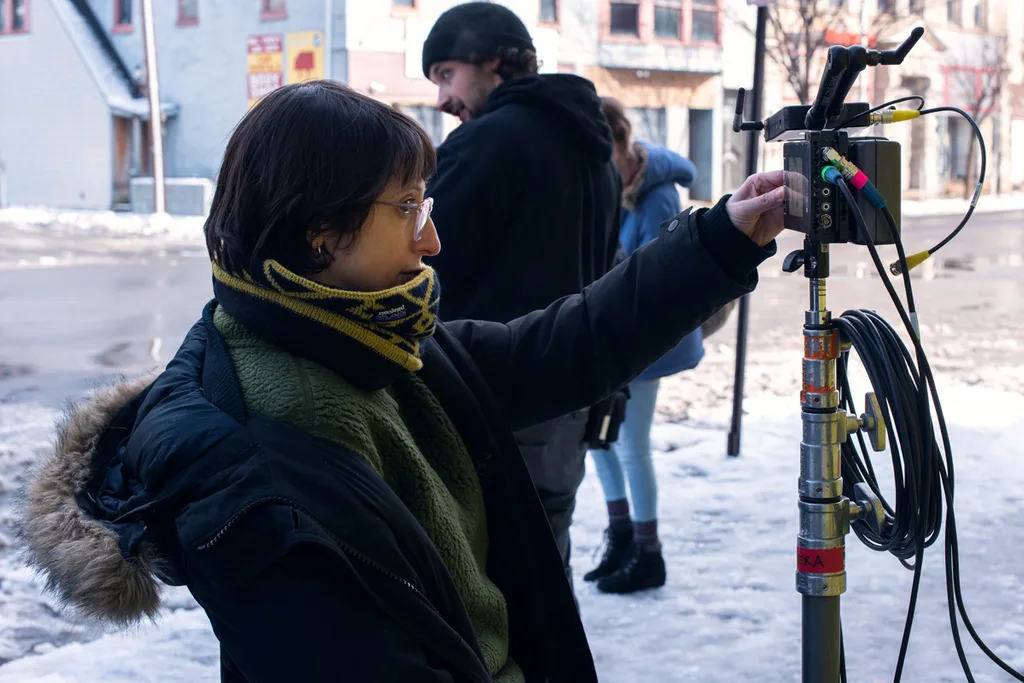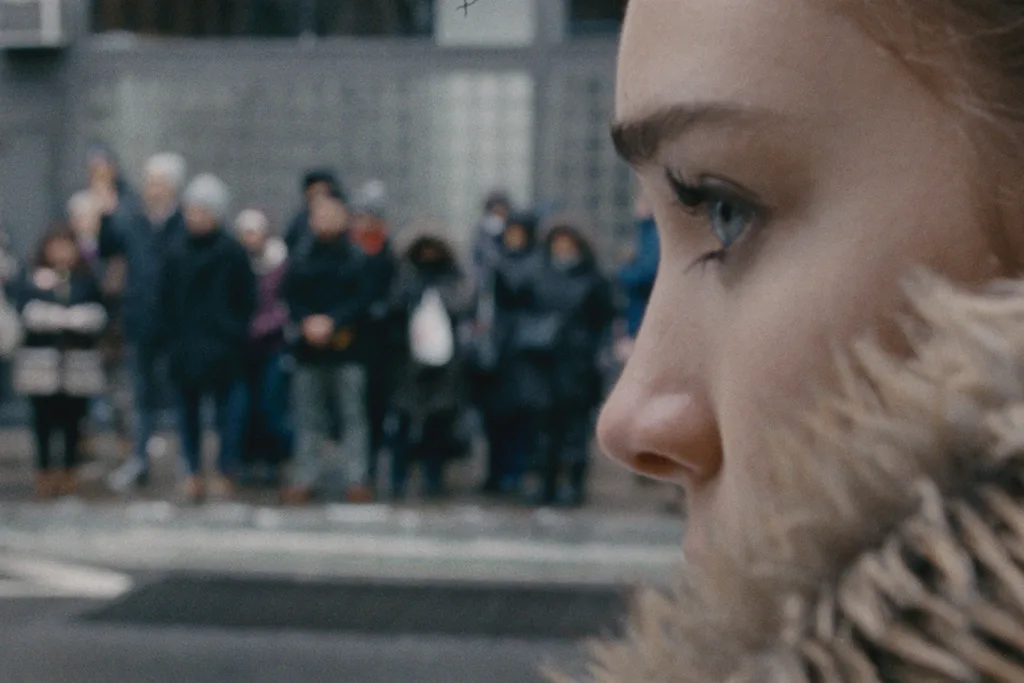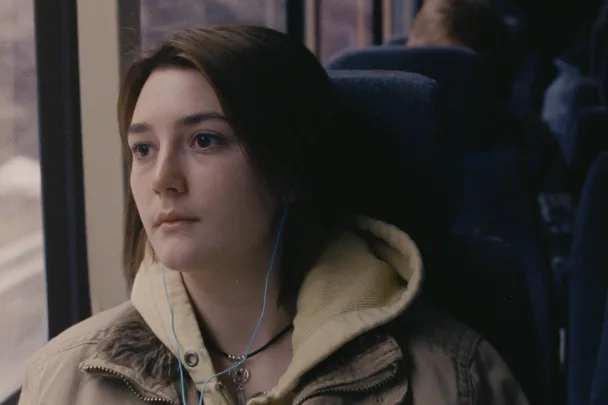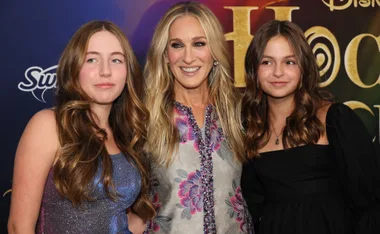Standing alone in front of her bedroom mirror, she raises her singlet and launches her attack. The first punch is a little timid, but the second comes down in earnest. The blows continue to her stomach as tears start staining her cheeks. Her desperation is palpable, clearly frustrated that her body refuses to surrender, that sheer force of will is not enough to kill the thing inside her.
Her name is Autumn and, as you’ve probably guessed, she’s pregnant. Her subsequent journey to procure an abortion is the focus of Eliza Hittman’s affecting new film, Never Rarely Sometimes Always. Part horror in how it so plainly maps all the ways people seeking abortions are made to feel alien, Never Rarely… follows 17-year-old Autumn (Sidney Flanigan) as she confirms her unwanted pregnancy, and, because she lives in Pennsylvania where parental consent is required for minors, travels to New York with her cousin Skylar (Talia Ryder) for the termination.
But I’m getting ahead of myself. After attempting a number of self-administered techniques – punching her stomach and swallowing a bunch of vitamin C tablets – Autumn returns to the women’s clinic in her small rural town where she first got the news of her unwanted pregnancy confirmed. The clinic is not sterile as most medical centres are: the curtains are floral and the drawings that adorn the walls are clearly the work of small children. Something’s not quite right. Our suspicions are heightened when the woman performing Autumn’s ultrasound shows her the fetus and refers to the heartbeat as “the most magical sound in the world.” We know what the clinic really is when Autumn indicates she might want to terminate and the doctor’s response is to play her an anti-abortion video.

Like many facets of the film, this faux clinic is drawn from reality, where they are just another part of the coercive pro-life agenda. “I did a lot of field work for the film in researching it,” Hittman says, talking to marie claire via phone about the research she conducted in making Never Rarely…, which she wrote and directed. “I didn’t want to sit in my apartment in Brooklyn, New York and judge what those places were like, because there’s one in every town in America. I thought why not just go, walk in and take the test? So that’s what I did.”
“The conversations that you see in the film are loosely a reflection of the conversations that I had with counsellors doing research. And there’s a moment where Autumn comes out of the centre in her town with a yellow gift bag with pamphlets – I got that after my session. In order to include those details, or have that kind of credibility, you need to walk in the shoes of the character.”
Having premiered her first feature film, A Lot Like Love, in 2013 and following it up with Beach Rats in 2017, Hittman has established herself as a writer, director with a prodigious skill at capturing the lives of teenagers with unsettling precision. A project almost 10 years in the making, she began writing Never Rarely… after reading about Irish women who – due to the now-repealed eighth amendment which asserted equal right to life for the unborn fetus and pregnant woman – would travel to London for abortions. “When I started to read and research about that journey, I really felt like I had never seen it before on screen,” she explains. “So many films that deal with abortion tend to focus on morality and not access. And in thinking about that journey, I saw the potential for a real classical hero’s journey. In some ways these women are so heroic and persistent, and I couldn’t imagine all of the distressing factors that play out along the way.”

By zeroing-in on the journey, Hittman’s able to elucidate all the different structural and cultural obstructions that work to prevent safe access. Importantly, the film makes clear the inherent impact of various factors in determining one’s experience. “It was interesting to explore it through the lens of class and the effect that that has in relation to geography,” she notes, explaining her focus. “The region that we shot in, Pennsylvania, it’s so close to New York and yet it feels like a 50 or 60 year step back in time. And I researched areas that had a cluster of those pregnancy care centres and the reason that they are all there is because there weren’t actually any medical offices.” The director found that there was a correlation between the socio-economic make-up of the town and the density of anti-abortion ‘pregnancy centres’; in other words, the poorer the town, the harder it would be for people to access proper reproductive healthcare.
The consequences of that correlation unfold as Autumn and Skylar arrive in Brooklyn and quickly learn that, by no fault of their own, they’ve made a grave miscalculation; having an abortion is not simply a case of getting yourself to a clinic. Surprise: Autumn isn’t 12 weeks, as the centre in Pennsylvania told her, she’s 18. No problem, they can still perform the abortion, she’ll just need to go to a different clinic. Surprise: that clinic is in Manhattan and the earliest appointment isn’t until morning. They hadn’t planned on staying the night so they’ll have to sleep at the bus depot. Surprise: the abortion is a two-step process performed over 24 hours, meaning she’ll need to come back again the following day to complete it. Surprise: if she wants to claim insurance she’ll need to tell her parents. Surprise: the return bus fare is more than they anticipated and their last cash was spent on the clinic appointment and food. And perhaps the biggest surprise of all: her body is no longer hers.
“My goal is to put the audience in the character’s shoes and feel the real barriers that exist emotionally, financially and geographically in letting this person have autonomy over her body,” Hittman explains. For her, a particularly formative experience during research was meeting with Planned Parenthood social workers and specifically, one named Kelly Chapman, who also appears in the film. “I was talking with her and trying to get a better understanding of what a counselling session is like,” she says. “How they deal with minors, what the concerns would be, and how they’re trying to support women who travel – and she said that the abortion is never the crisis. It’s always the mystery of what’s going on at home that you can’t solve in the hour that you see them before their procedure. That really resonated with me; it’s all these other structural issues and forces that surround people who need access that are the real problems.”

Another way Never Rarely… skewers the predominant abortion film narrative is its complete disinterest in the man who got Autumn pregnant. We never learn who the father is. It could be the teen boy who heckled Autumn at the high school talent show, interrupting her performance to yell ‘SLUT!’ Or it could be the boy who made a crude gesture at her from across the diner while she ate with her family. Or it could be her step-father who appears suspiciously ambivalent towards her and refers to the family dog as the ‘good slut’. This piece of information is left ambiguous deliberately, Hittman tells. “I went in knowing that I wanted to create more mysteries around the character [of Autumn], and for the audience to wonder or ultimately realise that [the identity of the father] was not significant to the narrative,” she says. “What was most important was that we feel how alone she is along the way, and the burden of navigating issues around the body alone.”
In doing so, Hittman has crafted a singular film that is harrowing because of how accurately it captures the isolation that accompanies feeling betrayed by your body amid a hostile, patriarchal environment. Hittman doesn’t show the abortion procedure, nor does she exaggerate aspects of the journey for dramatic effect – she doesn’t have to; the terror is not the abortion itself but in having to watch Autumn and Skylar shuttle between the bus depot and clinic, unsure of how they’re going to afford the bus trip home, let alone their next meal, all the while fending off near-constant unwanted sexual attention from men. “In lieu of having a conventional antagonist, I was really trying to explore the experience of being a young woman in the world and what it’s like at this vulnerable moment to be navigating all of this ambient sexism and misogyny around them instead.”
Never Rarely… is a feat because it manages to create space for an understanding of abortion that prioritises addressing the unnecessary structural impediments, while also acknowledging the complex personal toll without feeding pro-life ideals. “I didn’t want to make audiences, and particularly young audiences, fearful of the process,” Hittman says of finding the right balance and doing justice to the subject matter.
“But at the same time, I felt like I had to be true to the character experience, it would’ve felt dishonest to represent it as being too easy. So I found a middle ground, that I felt like the character’s loneliness, physical discomfort and anxiety about it was honest to what people really go through. Just because you’re intimidated by the procedure, doesn’t necessarily mean you change your mind.”
Never Rarely Sometimes Always is in cinemas now.










